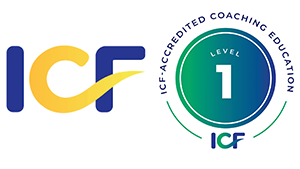Distinguishing Business Coaching from Consulting
Many people commingle coaching and consulting yet the two professions take very different approaches.
Business consultants are problem solvers. Their underlying message is, “I know more than you do. I’ll tell you what’s wrong with your business and how to fix it.”
Business coaches are people developers. They don’t tell their clients what to do, but instead they ask questions. As a business coach, you communicate with your clients, letting them know, “You’re smart. I’ll be a mirror to help you look inside yourself, so you can not only solve this problem, but increase your capacity to successfully manage all areas of your life.” Business coaches unleash incumbent capability.
- Business consultants help their clients catch fish, so they can eat a meal.
- Business coaches help their clients learn how to fish, so they will never go hungry.
- Business consultants typically focus on maximizing near term results and profitability.
- Business coaches typically focus on maximizing potential and unleashing capability.
- Business consultants help their clients succeed in their jobs.
- Business coaches help their clients succeed in their lives.
What’s The Motivation?
Inspiration and Desperation… the entrepreneur feels overwhelmed by growing their business.
Inspired individuals want a business coach to help them do better.
Desperate people want a business coach to help get them out of a jam.
The entry point in business coaching is usually a business issue. The client may want to increase sales, promote better teamwork, enhance productivity, reduce turnover, or improve quality. But the coaching relationship, once initiated, invariably moves beyond the initial perceived need. “Fix my business” gradually and naturally evolves into “work with me on me.”
A client facing business crisis, for example, may discover through coaching that he has a problem with procrastination, or with interpersonal skills, or with fear of failure. Sometimes clients realize their interests and skills don’t match the requirements of their current positions, and they decide to make a career change. Coaching weeds out inhibiting issues such as these, allowing buried potential to spring forth and bloom. Coaching allows to clients to chart new paths to success and manifest their own accountability for these changes.
Why do business leaders use coaches at all? Don’t they have friends and professional colleagues to talk to? Yes, and good coaches encourage their clients to deepen these relationships and build a reliable support system. But all alternative support systems have weaknesses.
In business, it’s lonely at the top. Managers can’t be vulnerable with their bosses or with their subordinates about the most sensitive issues. A coach becomes a safe place to become authentic and vulnerable- a place for real growth and change.
Friends will listen and give help when they can, but they’re not trained to identify the most significant issues. And when they have needs of their own, they want to receive help, not give it. More importantly, few well-intentioned peers or friends are trained in a coaching model that affords powerful questions, absence of an agenda and charts a path forward for the client.
Spouses can be good listeners, but it’s problematic to bring in-depth business counseling into the middle of a marriage. Even the best spouse is too attached to the outcome to be independent.
Because business coaching fills a real need, the profession is rapidly growing and gaining recognition. And because it produces such outstanding results, successful business coaches build their practices almost entirely through referrals.
But becoming a business coach starts with you. At Coach Training Alliance, becoming a coach is a journey, it doesn’t happen overnight. Our programs, taught by world-class Mentor Coaches, will provide you with the tools to chart your path. From business and marketing to coaching, you will have all the skills you need to develop a successful practice as a business coach.


